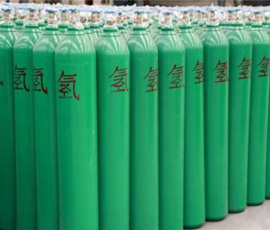IntroductionCategoryDetailsPhysical Properties– Molecular Weight: 2.016 g/mol– Density (Gas): 0
Email:services@moutainchem.com

| Category | Details |
|---|---|
| Physical Properties | – Molecular Weight: 2.016 g/mol |
| – Density (Gas): 0.08988 kg/m³ (0°C, 1 atm); (Liquid): 70.8 kg/m³ (-253°C) | |
| – Boiling Point: -252.87°C (20.28 K) | |
| – Autoignition Temperature: 500°C (932°F) | |
| – Explosive Range: 4–75% volume in air (widest flammability range) | |
| Technical Specifications | – Purity: 99.999% (5.0 grade, electronics); 99.9999% (6.0 grade, research) |
| – Impurity Limits: O₂ ≤ 0.1 ppm, H₂O ≤ 0.5 ppm, CO ≤ 0.1 ppm (6.0 grade) | |
| – Pressure: 200–300 bar (compressed gas cylinders); 1 bar (vapor at 25°C) | |
| – Cylinder Sizes: 10L, 50L, 100L (compressed gas); 1.000–10.000 gallons (liquid) | |
| – Valve Types: CGA 350 (US), DIN 477 (EU), and JIS B 8241 (Japan) | |
| – Flow Rate: 0.1–100 SLPM (standard liters per minute) | |
| – Purity Analysis: GC-TCD (Gas Chromatography with Thermal Conductivity Detector) | |
| Key Applications | – Energy: Fuel cell vehicles, hydrogen combustion engines |
| – Chemicals: Ammonia production (Haber process), methanol synthesis | |
| – Electronics: Semiconductor doping, CVD precursors, and cooling | |
| – Metallurgy: Annealing, hydrogen embrittlement testing | |
| – Aerospace: Rocket fuel (liquid H₂/LOX mixtures) | |
| Safety Data | – CAS No.: 1333-74-0 |
| – UN Number: 1049 (compressed); 1966 (liquid) | |
| – NFPA 704: Health 0. Flammability 4. Reactivity 1 (oxidizing) | |
| – Fire Risk: Extinguish with dry chemical/CO₂; avoid water (may react with metals) | |
| – Leak Detection: Use catalytic bead sensors or ultrasonic detectors | |
| Storage & Handling | – Compressed Gas: Store in Type 4 composite cylinders (≤50°C); secure upright |
| – Liquid Hydrogen: Cryogenic dewars (vacuum-insulated); PPE required (cryogenic gloves, face shield) | |
| – Ventilation: Ensure airflow in enclosed spaces to prevent accumulation | |
| – Purging: Flush equipment with inert gas (N₂) before H₂ introduction | |
| Certifications | – ISO 14687: Hydrogen fuel quality |
| – ASTM D7650: Gaseous hydrogen storage and handling | |
| – OSHA 29 CFR 1910: Flammable gases regulations | |
| Environmental Impact | – Zero Emissions: Combustion produces H₂O (clean energy carrier) |
| – Production: Gray H₂ (methane reforming, CO₂ byproduct); Green H₂ (electrolysis, renewable energy) | |
| – Leak Mitigation: Vapor recovery systems; hydrogen sensors in storage | |
| Quality Control | – Traceability: Lot-specific certificates of analysis (COA) |
| – Leak Testing: Helium mass spectrometry (≤1×10⁻⁹ atm·cm³/s) | |
| – Shelf Life: 24–36 months (certified stability when stored properly) |
Disclaimer: The above content is for reference and communication only among industry insiders, and does not guarantee its accuracy or completeness. According to relevant laws and regulations and the regulations of this website, units or individuals who purchase related items should obtain valid qualifications and qualification conditions.
Company Phone
+86-21-6420 0566
Working hours
Monday to Friday
Mobile phone:
13816217984
Email:
info@qinsun-lab.com
